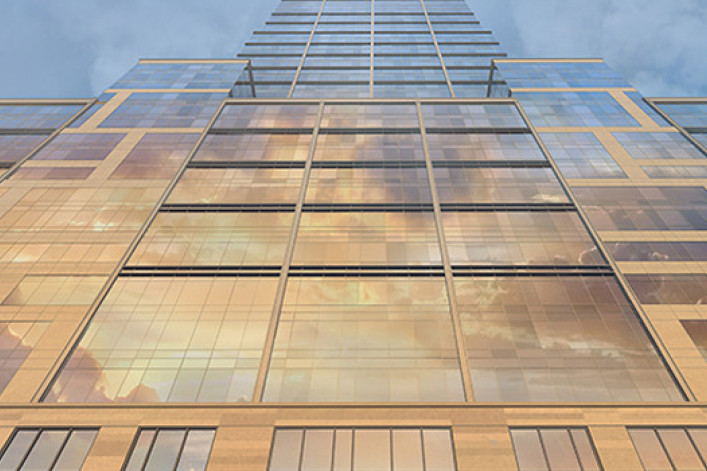How do I get a mortgage for a condo that's not built yet?

Q. I want to buy a condo in a new development, but I know that often you sign a contract months (or even years) before the building is finished and the deal closes. In this kind of situation, how do I get a mortgage? Is it any different from buying an apartment that's already built?
A. Getting your hands on a condo that’s still a hole in the ground varies from buying an existing apartment in most ways—and that’s true of getting a mortgage as well, our experts say.
“You can't get a mortgage commitment until the building is completed enough to earn a temporary certificate of occupancy from the Department of Buildings,” says real estate broker Gordon Roberts of Warburg Realty. “The TCO is granted on the basis of building code compliance and other factors.”
In short, banks are wary of lending to buyers in under-construction buildings because of Fannie Mae guidelines; they often won’t issue mortgages unless the building is already at least 51 percent sold and meets certain minimums for owner-occupied units, among other requirements.
“Some financial institutions cannot do new condominium financing until the building has two years of financials with the homeowners paying common charges,” says mortgage banker Robbie Gendels of National Cooperative Bank.
Luckily, in New York City, there’s no shortage of apartment hunters snapping up brand new condos, and developers deal with this all the time—usually by teaming up with a "preferred lender" that will line up mortgages until the building meets Fannie Mae’s specifications.
“Most new developments line up financing with a bank in advance so that people are assured that a bank will lend in a new development,” says Deanna Kory, a broker at the Corcoran Group. “So one bank often exclusively takes on the financing and has the entire project wrapped up and ready to go for a buyer.”
That’s not to say that you have to use one of these lenders, though likely it will be easier. Also, often, these banks will let buyers lock in an interest rate for a year while the project is being completed, says Kory, as opposed to the 60 to 90 day lock-in for typical purchases. That means you take on less risk that an interest rate will rise before you close the deal.
“If a project is expected to be built by January of 2016, you would lock in January 2015,” Kory says. “So a buyer is taking a rate risk from now till January 2015 but not till January 2016, which gives most buyers peace of mind.”
As for what the rates are, Kory says she would expect they'd be "within line of whatever the current prevailing rate is. After all, [the bank is] getting much of the business in that building. So the risk of default on these loans is limited."
In the meantime, you needn’t twiddle your thumbs. “You can gather quite a bit of intelligence in advance,” Roberts says, “even if the building is still a hole in the ground—namely, hiring and partnering with a real estate attorney experienced in new developments; researching the developer and their track record; asking the building's sales team if there is an approved lender for the project, and if there is, talking with them.”
Related:
12 tips for buying new construction with confidence
Ask An Expert: How much more do new condos cost?
Buy Curious: Pre-war, post-war or new construction, which is right for you?
Trouble at home? Get your NYC apartment-dweller questions answered by an expert! Send us your questions.
See all Ask an Expert.



























